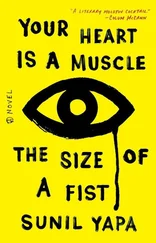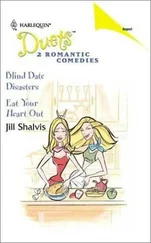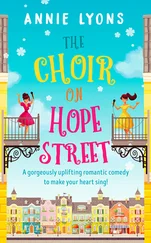John must have picked up on how I was feeling because he was marvellous with Paul. He picked him up and cuddled him and cheerily suggested that we take him out for a walk. He bought Paul a lollipop from a sweetshop and didn’t flinch when my happy-go-lucky, gorgeous little boy tried to force it into his mouth. He brought his camera and took lots of photographs, which are among my most cherished possessions: images of me and Paul, of John kissing Paul, and a few of Paul on his own, gurgling and laughing happily at these two kind strangers who had come to make a fuss of him for a few hours.
Travelling home on the train, I pressed my head against the cold glass of the window and fought back the tears. John sat next to me saying nothing. I was growing increasingly fond of this kind young man who seemed to accept me for who I was, regardless. I couldn’t believe how gentle he’d been with my son. We were a long way off making a commitment to each other; we were both still young, John was away travelling much of the time, and I wasn’t in a hurry to rush into anything again the way I had with Jim.
But could I – dare I – even dream that there might be a brighter future for Paul and me after all? That he and John and I might end up together as a family in the sort of happy home I’d grown up in, the kind I’d always dreamed of providing for my son? Turning and resting my head on John’s shoulder, I squeezed his hand and let out a sigh.
Not long after that journey to Matlock, Mr Guifreda called me into his office and asked me to sit down. ‘Dors’ Jones had left Quaintways by then, to be replaced by Val Pyeman, who was just as nice and who sat in on the meeting too.
‘Our managing director has heard of your problems…er, you know, with Paul,’ Mr Guifreda told me hesitantly. ‘He’d like to help.’
Like Mr Guifreda, the managing director of Lewis’s was a real gentleman who cared for his staff and always took an interest in their welfare. I wondered what he could possibly do to help. A pay rise perhaps? A word with social services to get them to move Paul closer to Chester? I hardly dared hope.
‘He’d like to adopt Paul,’ Mr Guifreda said, as my heart skipped a beat.
‘No!’ I gave my knee-jerk reaction.
Mr Guifreda pressed on. ‘He has three daughters and would love a son. He knows you want what’s best for your boy, and he wants you to know that he and his wife would give Paul a marvellous life in the bosom of a loving and wealthy family.’
I shook my head. I didn’t know what else to say. My mind was in turmoil. I’d resisted adoption for so long, why would I relent now? And why had the managing director waited all this time to ask? Had John’s parents orchestrated this to get my Paul out of the way? After all, Nick Guifreda was a close friend of John’s father. Then I had to remind myself that the managing director was a good man. For a moment, I allowed myself to speculate that if he did adopt Paul, he might let me stay in touch. I might even get to see more of him, being that much closer. Realizing that would be impractical and feeling like a rabbit caught in the headlights, I told Mr Guifreda that the answer was still no.
‘Think it over. Talk to your mother. Remember,’ he added with a smile, ‘everyone just wants what’s best for Tilly’s baby.’
‘Me too,’ I said, shrugging my shoulders. The trouble was that – confused, isolated, and pressured from all sides – I didn’t really know what the best for Paul might be.
I can’t now remember how the Derbyshire hospital got in touch with me. I think I must have blanked that particular memory from my mind. But the news they gave me left an indelible mark. Paul was seriously ill. It was meningitis, they believed. I should go to him straight away.
John, who’d taken a job in a butcher’s shop between voyages, kindly offered to take the day off and go with me to Matlock. I don’t think I can have said a word the whole way there. I sat looking blinkingly out of the train window at the beautiful Peak District countryside thinking how ironic it would be if anything should happen to Paul now, just as I’d found the man I might end up sharing the rest of my life with.
Not that John didn’t have his faults. I already knew that any relationship with him would have its highs and lows. He was extremely clever, a man of passion whose fervour for the unions and championing of the underdog I admired, having come from a strong working-class background myself. But with that passion went an inner insecurity and dark moods that I wasn’t sure I could spend the rest of my life dealing with.
It was his sulks I dreaded the most: those awful long silences he’d retreat into when he was upset, usually about something quite trivial. Once he was in that mood, he wouldn’t listen to a word I had to say. Then I had to remind myself that he always came round in the end, apologizing with flowers and surprises. And I was no longer a silly little girl with a crush. I’d matured a lot. I was more cautious and quite capable of my own moods, too. One night, when I’d made a special dinner for him at my mother’s house, he came home so late from a strike march in Liverpool that the meal was ruined.
Pinned to my mother’s front door John found a note which read: Darling/Dear (both scrubbed out), then: John, so glad you’re back from your march and you could make it. Well, I’ve just gone on a march so you can bloody wait for me. I signed it, Love, Pauline, but scribbled out the word Love at the last minute. John still has it.
Another time, when he came in late I asked him what he wanted to eat. He replied, ‘Just put a couple of eggs on the boil.’ I filled a pan with cold water, turned on the heat, waited a few seconds and dropped the eggs in. ‘You don’t boil eggs like that!’ John cried. ‘You mustn’t put them in until the water’s boiled.’
I protested that my mother, who’d been a maid, had always told me that if I boiled them the way he said the eggs would burst. Shaking his head, John said, ‘Well, you don’t even know how boil an egg!’ Within minutes two raw ones were cracked on his head, the yolks dribbling down his face.
Those silly spats all seemed meaningless as I headed towards Paul ill in a hospital bed. Meningitis. What was that exactly? It sounded so serious. What if he didn’t recover? The closer we got to the hospital the more my head whirled with all sorts of wild notions.
By the time we reached the children’s ward and were directed to the little bed where Paul lay, I was all but convinced that we’d be too late. It was such a relief to see him, even if he didn’t seem as delighted to see me. He was sitting up in bed in his little hospital gown and we were even allowed to take him outside in the sunshine for some fresh air. John had brought his camera along again and took some photos of me holding Paul in my arms.
When we brought him back to the ward, a doctor told us the results of his tests. ‘It’s not meningitis after all. He has a slight fever and we’ll keep him in a couple of days for observation, but don’t worry, he’ll be fine.’ I could have kissed him.
The hardest thing was leaving Paul alone in hospital that night. It was late and John and I both needed to be back in Chester for work the following morning. We had to leave straight away and catch the last train, though we’d still not be home until the early hours. I sat alongside my sleepy toddler and stroked his hair. I kissed his face with my tears as he looked silently up at me with those big blue eyes.
‘Come on now,’ John said, taking me by the elbow. ‘You’ll not do Paul any good wearing yourself out.’
Getting to my feet and gathering my things together, I took one last lingering look at my poorly little boy and blew him a kiss. ‘Night, night, darling,’ I said. ‘Mummy will be back soon. I promise.’
Читать дальше












